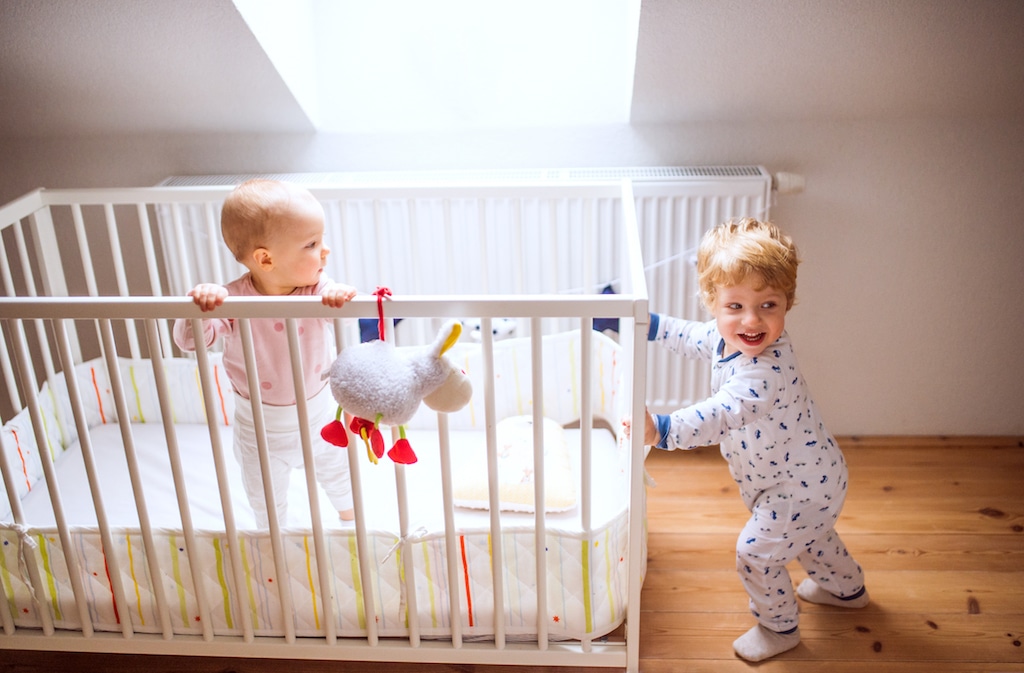If you have just separated or are likely to, it is important you get advice about what will happen with custody of the children.
Most of the time, parents who have separated agree on the future parenting of their children. For some, the children might live with one parent, and see the other at weekends, holidays and special days. For others, the children may effectively have two homes and spend an equal amount of time with each parent. For many, the arrangements are somewhere between.
Sadly, not all agreements can be made amicably, or there may be extenuating circumstances that mean parents choose to litigate in the family court system. Litigating child matters in the courts can be particularly emotionally straining for all parties involved and is often considered to be a last resort. That being said, it is important to understand the process and implications if you’re considering seeking custody as part of a separation. In this article, we seek to provide some clarity around the process of seeking child custody.
What is child custody?
The term ‘custody’ is actually no longer used by the family law courts, however it is still used regularly by others and in the media. In Australia, parenting arrangements fall under the Family Law Act 1975, which covers divorce and separation, property separation, parenting arrangements and financial maintenance. The terms ‘custody’ and ‘access’ are no longer used and have been replaced with ‘live with’ arrangements and ‘spend time with’ arrangements as preferred terms.
What is the legal process for getting child custody?
There are no standard arrangements for the care of a child following separation, however the starting point is Section 65E of the Family Law Act. This details the basis of who a child will ‘spend time with’ and who a child will ‘live with’.
The law assumes firstly that decision making is shared amongst parents (for example decisions around religion, medical treatments, changes to where a child lives or to their name or decisions around their education), unless in circumstances of a risk of family violence or abuse. However, equal shared parental responsibility does not always mean that there is an automatic right to spend an equal amount of time with the child. This decision is made by the Courts in the best interests of the child.
What is the legal process for getting child custody?
The courts’ primary focus in deciding on custody (parenting order) is what is in the child’s best interests. The primary considerations are;
- The benefit to the child of having a meaningful relationship with both parents
- The need to protect children from any harm, such as family violence, neglect or physical and psychological harm
The latter is always deemed the priority of the two primary considerations. There are a host of other additional considerations that may include;
- the views or wishes of the child – if these are expressed
- the relationship of child with their parents and significant others, for example grandparents and siblings
- parental involvement – how much time each parent has spent with the child, whether they have fulfilled their parental obligations
- the effect of any changes – such as where the child has been living or staying, practical difficulties of spending time with each parent or significant others
- cultural issues – for example religion
- any family violence issues
- another other issues the court deems are important to the case
Should I go to court for child custody?
It is most often the case that parenting arrangements can be made without the intervention of the Courts. Most lawyers would recommend finding alternative ways to finding a resolution, for example mediation. By appointing an experienced family lawyer and taking a proactive approach to litigation, it is very possible to avoid the Court or leave the court system sooner, allowing you to move on and raise your children.
We pride ourselves on only a very small percentage of our matters making it to a final hearing in the court because the advice we give is pragmatic and we explore all opportunities available to settle your matter without the high cost associated with litigation to the end.
If you are seeking court intervention, ask yourself the following;
- Do I want sole parental responsibility?
- Why do I want sole parental responsibility? Do I have a genuine concern about the other party’s ability to care for the children and/or capacity to co-parent effectively?
- Why do I want the children to live with me? Do I have a genuine concern about the children’s ability to adjust or the new lifestyle of my ex-partner?
- Are my children at risk of violence, abuse or neglect? Do I have any evidence of this?
If your concerns are genuine and you cannot come to a resolution outside of the Court, you can file an application in the Family Law Courts for Parenting Orders. You should seek advice about whether any exemptions to attending family dispute resolution first apply to your circumstances.
What is the process for getting a court order?
You must demonstrate that you have tried alternative methods of dispute resolution prior to filing an application with the courts, unless your situation is urgent or another exemption applies (for example it involves family violence or child abuse). It is imperative to get advice from your solicitor prior to taking any action.
If you are unable to reach an agreement, documents need to be filed with the Federal Circuit Court of Australia, including the initiating application, affidavit(s), mediation certificate, notice of risk and the court filing fee. In some cases, an application may need to be filed with the Family Court of Australia. It is really important to seek advice from a family law expert if you are considering going down this path. We can guide you through the parenting arrangements process, avoiding litigation where possible and ensuring you can the best outcome for your children and family. If Court is the only option, then we can guide you through the litigation process.
What if I already have a parenting arrangement in place and circumstances change?
Firstly, it depends how the parenting arrangement is recorded. If you have a court order and want to vary it, you may need to satisfy the Court that there has been a significant change in circumstances, which requires expert family law advice.
The above gives you just a snapshot of some of the complex factors involved when considering child custody. It is possible to avoid Court and come to a resolution that suits both parties, particularly with the support of a friendly, understanding and compassionate family lawyer. At Daykin Family Law, we’ve worked with hundreds of parents to come a resolution in the best interests of their children.
We have developed close relationships with psychologists and social workers who also act as experts in the Family Law Courts and can help you and your family stay out of the Court system wherever possible. If Court is the only option, we can discuss with you ways to keep your legal costs down and work with you to achieve the result you desire.
Daykin Family Law have offices in Brisbane and are highly experienced in navigating the complex area of Child Custody. Director, Shannon Daykin, was named in the prestigious Doyle’s Guide for 2019 in the Leading Family & Divorce Lawyers list (Recommended) and Leading Parenting & Children’s Matters Lawyers list (Recommended). Daykin Family Law was also named as Recommended in the Leading Family & Divorce Law Firm list.
We give you expert legal advice on the most appropriate and cost effective course of action for you and your family. Contact us on (07) 3338 5645 to make an appointment for a fixed fee initial consultation today.

















